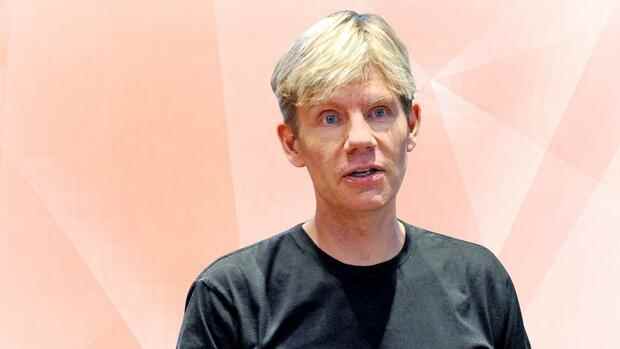With the looming global food crisis, policy makers around the world need to think hard about how to make food cheaper and more available.
This will require a willingness to produce more fertilizer and better seeds, maximize the potential of genetic engineering, and abandon rich countries’ obsession with organic produce.
Russia’s brutal war in Ukraine means less food is available, as the two countries are responsible for more than a quarter of world wheat exports and large quantities of barley, corn and vegetable oil.
Putin is now explicitly using grain exports from Ukrainian ports as a means of exerting pressure on the West in order to ease the sanctions. In addition, due to climate policy measures and the corona pandemic, the prices for fertilizers, energy and transport are increasing, so that food prices have increased by 61 percent in the last two years.
Organic farming lowers output by 25 to 50 percent
Putin’s war has exposed some hard truths. One is that Europe – which bills itself as a green energy pioneer – is heavily dependent on Russian gas.
The war has brought home in no uncertain terms the fact that fossil fuels remain critical to the vast majority of global energy needs. The looming food crisis is now revealing another grim truth: Organic farming cannot feed the world and could even make future crises worse.
Long a fad for the wealthiest 1 percent of the world’s population, environmentalists are increasingly peddling the enticing idea that organic farming can solve hunger.
The EU is actively working to triple organic farming on the continent by 2030, and a majority of Germans actually believe it can help feed the world.
However, research clearly shows that organic farming produces much less food per hectare than conventional farming. In addition, organic farmers have to regularly take part of their land out of production so that they can regenerate.
If you include these areas in the calculation, organic production is even less effective. Overall, organic farming produces between a quarter and a half less food than conventional, scientifically managed farming.
The Sri Lankan crisis is a sobering lesson
Not only does this make organic food more expensive, it also means that organic farmers would need much more land to feed the same number of people as they do today – potentially almost twice the area.
Considering that agriculture currently uses 40 percent of the Earth’s ice-free area, switching to organic farming would mean destroying large parts of nature for less efficient production.
The disaster now unfolding in Sri Lanka is a sobering lesson. The government pushed for full conversion to organic farming last year and appointed biogurus as agricultural advisors, including some who have claimed dubious links between agrochemicals and health problems.
Despite extravagant claims that organic methods could produce yields comparable to conventional farming, these policies resulted in nothing but misery within months, with food prices in some cases quintupling.
Sri Lanka was self-sufficient in rice production for decades but is now tragically forced to import $450 million worth of rice. Tea, the country’s main export crop and source of foreign exchange, was wiped out with an estimated economic loss of $425 million.
Before brutal violence and political resignations sent the country into a downward spiral, the government was forced to offer farmers $200 million in compensation and $149 million in subsidies.
Sri Lanka’s bio-experiment failed mainly because of a simple fact: the country does not have enough land to replace synthetic nitrogen fertilizers with animal manure. To go organic and keep production going, you would need five to seven times more manure than there is today.
Synthetic nitrogen fertilizers are critical to global nutrition
The example of Sri Lanka underscores the irresponsibility of our obsession with organic farming. Wealthy consumers in Germany may not be able to cope with food price increases, but many poor households in developing countries spend more than half of their income on food.
Every one percent increase in food prices pushes another ten million people into poverty. Those who advocate global organic agriculture implicitly suggest that billions of people should go without food.
Studies show that organic farming can only feed about half of the world’s current population. Organic farming will result in more expensive, scarce food for fewer people while devouring more of nature.
>> Read here: Wheat cheaper than before the Ukraine war – but more and more people are starving
Synthetic nitrogen fertilizers, mostly made from natural gas, are a modern marvel vital to feeding the world. Largely thanks to this fertilizer, agricultural production has tripled in the last half century while the population has doubled.
Artificial fertilizers and modern agricultural technologies are the reason that in all rich countries the number of people working in agriculture has decreased and people have become available for other productive activities.
Also, a dirty secret of organic farming is that in rich countries, the vast majority of existing organic crops depend on imported nitrogen washed from animal manure.
But that comes from cows that are usually fed corn and other foods made with synthetic fertilizers. In essence, then, organic farming indirectly imports fertilizers made from fossil fuels.
To feed the world sustainably and prevent future global shocks, we need to produce food more efficiently and cheaply. History shows that the best way to do this is by improving seeds, including genetic engineering, and expanding fertilizers, pesticides, and irrigation.
In this way we can produce more food, lower prices, alleviate hunger and protect nature.
The author:
Björn Lomborg is President of the Copenhagen Consensus Center and a Visiting Fellow at Stanford University’s Hoover Institution.
More: WFP Germany boss Frick: “It has become fashionable everywhere in the world to eat western food”
